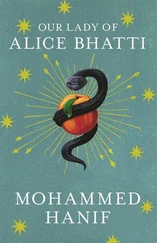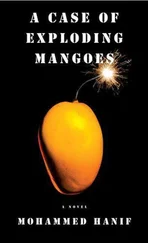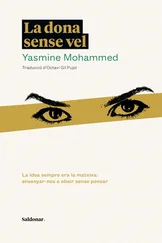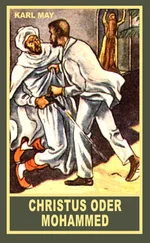Mohammed Mrabet - M'Hashish
Здесь есть возможность читать онлайн «Mohammed Mrabet - M'Hashish» весь текст электронной книги совершенно бесплатно (целиком полную версию без сокращений). В некоторых случаях можно слушать аудио, скачать через торрент в формате fb2 и присутствует краткое содержание. Жанр: Историческая проза, на английском языке. Описание произведения, (предисловие) а так же отзывы посетителей доступны на портале библиотеки ЛибКат.
- Название:M'Hashish
- Автор:
- Жанр:
- Год:неизвестен
- ISBN:нет данных
- Рейтинг книги:3 / 5. Голосов: 1
-
Избранное:Добавить в избранное
- Отзывы:
-
Ваша оценка:
- 60
- 1
- 2
- 3
- 4
- 5
M'Hashish: краткое содержание, описание и аннотация
Предлагаем к чтению аннотацию, описание, краткое содержание или предисловие (зависит от того, что написал сам автор книги «M'Hashish»). Если вы не нашли необходимую информацию о книге — напишите в комментариях, мы постараемся отыскать её.
M'Hashish — читать онлайн бесплатно полную книгу (весь текст) целиком
Ниже представлен текст книги, разбитый по страницам. Система сохранения места последней прочитанной страницы, позволяет с удобством читать онлайн бесплатно книгу «M'Hashish», без необходимости каждый раз заново искать на чём Вы остановились. Поставьте закладку, и сможете в любой момент перейти на страницу, на которой закончили чтение.
Интервал:
Закладка:
He sat down beside Mustafa for a while and listened to the Americans talking and laughing. After a while he got up again and wandered out into the garden. This time he stood under one of the trees and picked six of the white flowers. He stuffed them into his pocket. The American saw him from the doorway, and as he came in he asked him: Won't the flowers get all crumpled up in your pocket?
It doesn't matter, Hamed said. I like to have them there because they smell good.
The American laughed, and Hamed went in and sat down. Soon he said to Mustafa: Let's go.
Mustafa and Abdeslam stood up. They all shook hands with everyone, and went out.
When they got home, Mustafa and Abdeslam sat down together and went on talking. Hamed said he was going to make some coffee. They looked up and said they would like some. He went into the kitchen. Taking the flowers out of his pocket, he dropped them into the pot of water. He stood for a good while watching them as they boiled. Then he took them out and threw them down the latrine. He used the yellow water in which they had been boiling to make the coffee, and he made it very strong. When it was ready, he filled two glasses and took them into the other room. Then he went into the kitchen and got his own coffee, and sat down with them.
Mustafa and Abdeslam drank the coffee as they talked. They went on talking, but it was not long before their words began to come out very slowly. And there were long silences between them, until finally Mustafa shut his eyes and rolled over with his head on the floor. Abdeslam stayed where he was, with his eyes and mouth open, but he did not move at all. It was as if he had been made of stone.
Hamed sat down beside Abdeslam, reached out, and unfastened Abdeslam's belt. He began to pull down his trousers. Abdeslam did not move. He got the trousers off, and then he pulled off Abdeslam's shorts as well. Still he did not move. Hamed pushed him and rolled him over onto his belly. He knelt above him and spat between his buttocks. Then he made him pay for the insults, as the woman under the datura trees had told him to do. When he had finished he went into his room and slept.
In the morning he arose and made his breakfast. Soon Mustafa awoke, and got up off the floor where he had been all night. Then he saw Abdeslam lying there, just as Hamed had left him the night before, with his buttocks still uncovered. He looked at Hamed without speaking.
Yes, I did it, said Hamed. I swore to my mother I'd do it, and I did it. I've got to go out. When your friend wakes up, you watch him. He's going to put his hand back there. Then he's going to look at you, and put on his pants fast, and go down to the beach and take a bus for Casablanca. I'll see you later.
ALLAH'S WORDS
Si Brahim was a very religious man. He was so fond of the Koran that he imagined other people did not hold it in high enough esteem, and he often felt it his duty to counsel his friends and neighbors against ordinary sins such as stealing, buggery and drunkenness. He also gave generously to the poor. A good man, people said when he passed by. Like a saint, said some. They kissed his hand and called him Cherif.
Si Brahim owned a big bazaar where many tourists came each day to buy things. He had a son who was nearly twenty, and it was the young man whom Si Brahim left in charge of the bazaar when he went to pray at the mosque. When he heard the words of the Koran being chanted, he always felt that life was good. Sometimes he would stay in the mosque all day long, seated in a dark corner on a mat, merely listening to the words. He knew that most people could not afford this luxury, and yet he thought it would be a wonderful thing if others could hear the holy words all day long, the way it was his own good fortune to be able to do.
He reflected on this, and one day he went to a Hindu shop and bought a large tape-recorder. That night he told his son that he had decided to make a gift to the neighborhood. I want you to fill this tape with words from the Koran, he told him.
The young man took the tape to his room and kept it there for a week or so, until he had filled it with surat from the Koran. Then he gave it back to his father.
Si Brahim set the loudspeakers up in the window, and started the machine going, so that the people in the street below could hear Allah's words. It made him very happy to hear them so loud and strong, and he was delighted with his idea. The passers-by were pleased, too. They called up to him: May Allah prolong your life!
Si Brahim sat happily in the window the rest of the day, playing the tape over and over. The following day he stayed only an hour or so at the bazaar, prayed quickly at the mosque, and went home to continue working for the neighbors with the machine.
The third day his wife came in as he was sitting there in the window, and said: Are you just going to be sitting there playing that machine from now on?
Si Brahim was indignant. I'm giving people the words of Allah, woman, he said.
Can't we have a little quiet? What's the matter with you? And she went out of the room angrily.
After a few days Si Brahim noticed that the people no longer seemed to be stopping to listen to the words he was playing for them, nor did anyone call up blessings upon him. This was only because they had heard enough of the loud words coming from the window. Many of them in the quarter now thought Si Brahim a little crazy. His family came to know of this, and were very much ashamed. But there was nothing they could do about it. The son comforted his mother. I'll try and think of something, he told her.
Si Brahim went on sitting in his window, thinking: They're not listening. They don't want to hear the words of Allah. One day he could stand it no longer, and he went down into the street and began to stop the passers-by.
Do you hear those words? he cried. Then why don't you pay attention to them? They're the words of God. And you're not living the way they tell you to live.
And the people began to say: You see? He's getting worse.
They shook their heads and clicked their tongues. Si Brahim heard them, and he was very much upset. He could not eat his lunch that day, and he went out to sit in a cafe.
After he had gone, his son decided to go and see a friend of his, a young man who also had a tape-recorder. He persuaded him to go with him to his house and to bring the machine along with him. There they placed the two machines together and rerecorded all the words of the Koran that were on the tape, but backwards. When they had finished, they put the new tape onto Si Brahim's machine and went into the next room where the rest of the family were having tea.
At the cafe Si Brahim met a friend whom he had known for many years. The man was now a heavy kif-smoker. They sat together talking for a while, and the friend offered Si Brahim some kif.
No. I never smoke it, Si Brahim said.
That's too bad. You might not look so sad if you did.
Si Brahim did not answer. After a moment he said: You must come and have dinner with me at my house.
Good, said the man.
I'll play you the words of Allah on my tape-recorder, Si Brahim told him. He thought this might be good for the kif-smoker.
The man had heard about Si Brahim's tape-recorder from the people who lived in the quarter. Ouakha, he said.
They paid the qahouaji and set off for Si Brahim's house. As they went in, Si Brahim was saying: People don't want to hear the words of Allah any more.
His son met them at the door and went into the room with them. When his father was not looking, he winked at the visitor.
The two men sat down. Si Brahim called his wife and asked for tea, and said that his friend would be staying for dinner.
The woman went back to the family and told them: He's brought that old hacheichi home for dinner. It's the only way he can get anybody to listen to his machine. I feel sorry for the poor hacheichi.
Читать дальшеИнтервал:
Закладка:
Похожие книги на «M'Hashish»
Представляем Вашему вниманию похожие книги на «M'Hashish» списком для выбора. Мы отобрали схожую по названию и смыслу литературу в надежде предоставить читателям больше вариантов отыскать новые, интересные, ещё непрочитанные произведения.
Обсуждение, отзывы о книге «M'Hashish» и просто собственные мнения читателей. Оставьте ваши комментарии, напишите, что Вы думаете о произведении, его смысле или главных героях. Укажите что конкретно понравилось, а что нет, и почему Вы так считаете.












